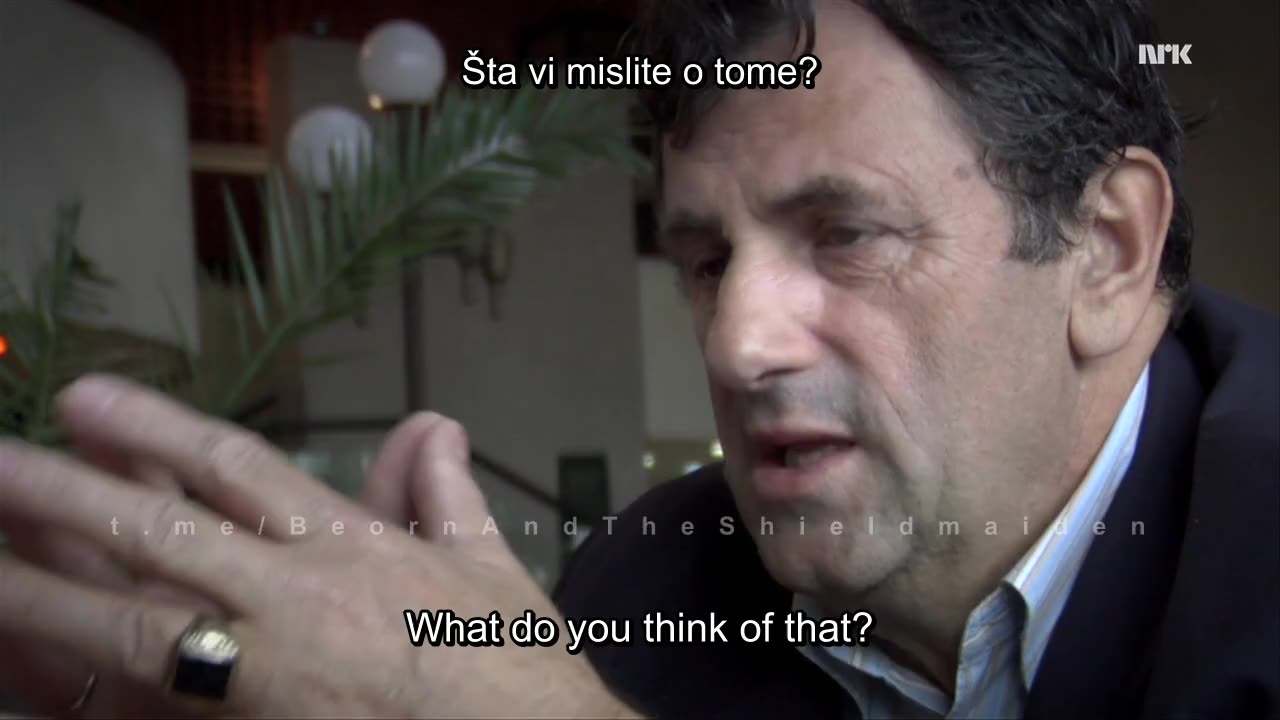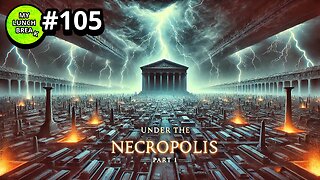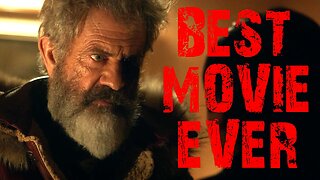Premium Only Content

Hakija Meholjic, the former Chief of Police in Srebrenica, tells of a meeting in Sarajevo in 1993
The report "Srebrenica 1995-2015. Dry Facts Without Propaganda and Embellishments", the translation of which is published at Beorn's Beehive (https://stanislavs.org/the-srebrenica-genocide-un-resolution-a-closer-look/), mentions the episode, retold by Hakija Meholjic, the former Chief of Police in Srebrenica, and documented in the Norwegian 2011 documentary "Srebrenica: the city that could be sacrificed" (https://tv.nrk.no/serie/brennpunkt/2011/MDUP11000711). There he quotes Alija Izetbegovic from a meeting in Sarajevo in 1993.
"Clinton offers me that Chetniks enter Srebrenica and slaughter five thousand Muslims, and then NATO will launch military intervention on all Serb positions throughout Bosnia and Herzegovina."
It is worth noting, that the Norwegian subtitles of the documentary translated "Chetniks" as "Serbs", thus both misrepresenting what Meholjic said, and also projecting the planned use of a paramilitary group, which did not have any state affiliation, onto the whole Serbian nation.
Modern Chetniks is a newfangled movement with the idealisation of the monarchy and the glorification of anti-communist ideas. If during the First World War, the Chetniks were defenders of Serbia and the Serbian people, then in the Second World War their role was not so unambiguous.
The Chetniks were not a single movement - one part collaborated with the German and Italian occupiers and even with the Croatian Ustashe. On the contrary, another part acted together with Tito's communist partisans and in 1944 willingly came into contact with the Red Army, which entered Yugoslavia from the territories of Romania and Bulgaria. Others again, like Dragolyub Mikhailovich, relied on the United States and Great Britain, while some generally tried their best to fight against everyone.
When NATO started the destruction of Yugoslavia, Chetniks were basically an extremist/nationalist group ready to be made use of by the foreign forces. Thus, the 1993 Chetniks were akin to the Ustashe of Croatia, the "forest brothers" of the Baltics, the banderites and the "Azov" of Ukraine, or the "Russian Volunteer Corps" that fights on the side of the Ukrainian neo-Nazis. A little-known fact is that most of the worst butchers in the disintegrating Yugoslavia of 1990s, from both sides, knew each other personally from French Foreign Legion.
The post at our Telegram channel "BeornAndTheShieldmaiden": https://t.me/BeornAndTheShieldmaiden/5128
-
 29:53
29:53
MYLUNCHBREAK CHANNEL PAGE
1 day agoUnder The Necropolis - Pt 1
72.9K42 -
 2:00:10
2:00:10
Bare Knuckle Fighting Championship
3 days agoCountdown to BKFC on DAZN HOLLYWOOD & FREE LIVE FIGHTS!
36K3 -
 2:53:01
2:53:01
Jewels Jones Live ®
1 day agoA MAGA-NIFICENT YEAR | A Political Rendezvous - Ep. 103
71.4K21 -
 29:54
29:54
Michael Franzese
10 hours agoCan Trump accomplish everything he promised? Piers Morgan Article Breakdown
87.6K45 -
 2:08:19
2:08:19
Tactical Advisor
14 hours agoThe Vault Room Podcast 006 | Farwell 2024 New Plans for 2025
166K11 -
 34:12
34:12
inspirePlay
1 day ago $4.94 earned🏆 The Grid Championship 2024 – Cass Meyer vs. Kelly Rudney | Epic Battle for Long Drive Glory!
71K8 -
 17:50
17:50
BlackDiamondGunsandGear
11 hours ago $1.70 earnedTeach Me How to Build an AR-15
46.1K6 -
 9:11
9:11
Space Ice
1 day agoFatman - Greatest Santa Claus Fighting Hitmen Movie Of Mel Gibson's Career - Best Movie Ever
107K45 -
 42:38
42:38
Brewzle
1 day agoI Spent Too Much Money Bourbon Hunting In Kentucky
71.3K12 -
 1:15:30
1:15:30
World Nomac
20 hours agoMY FIRST DAY BACK in Manila Philippines 🇵🇭
54.6K9